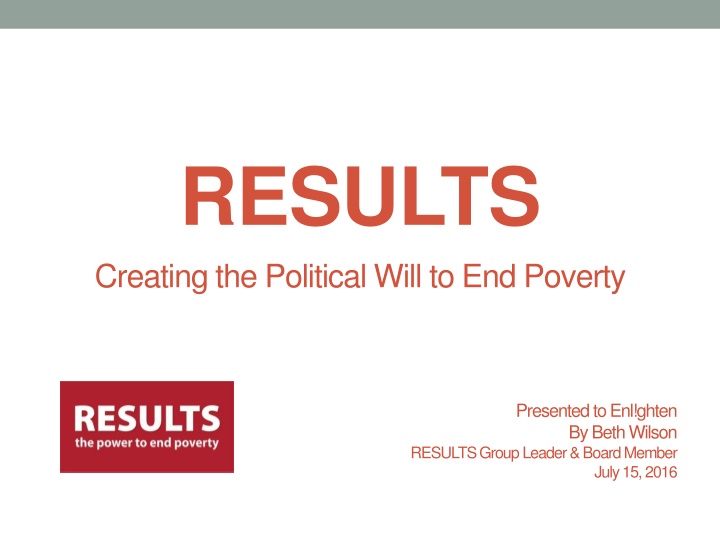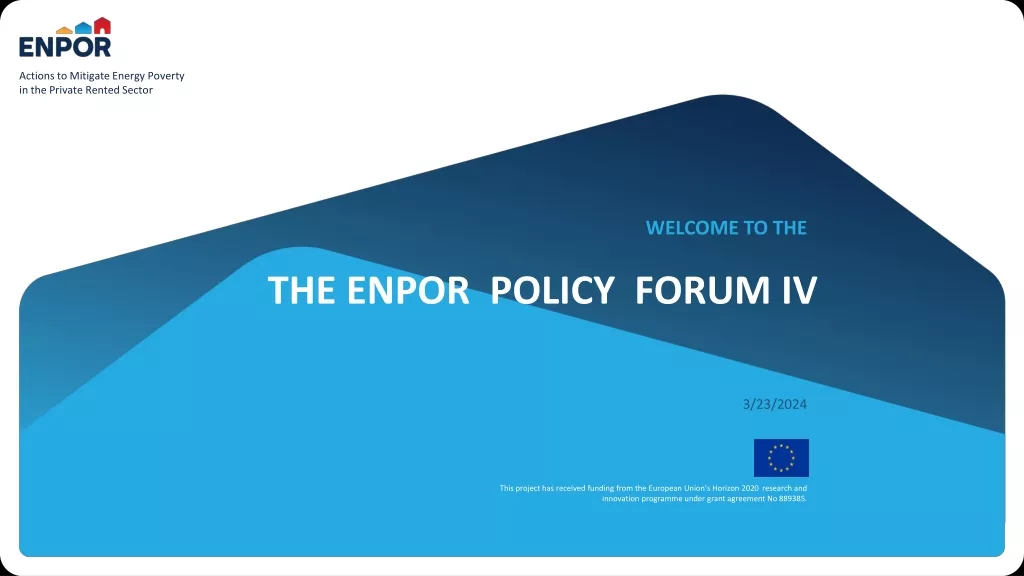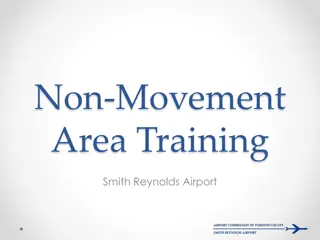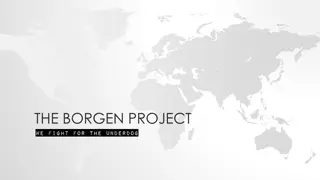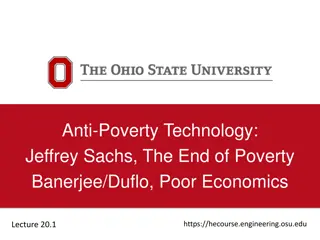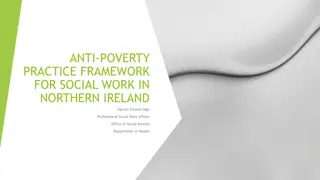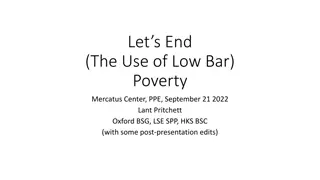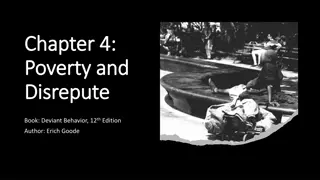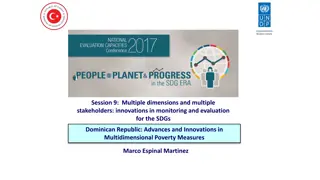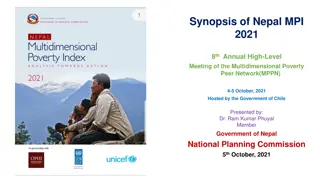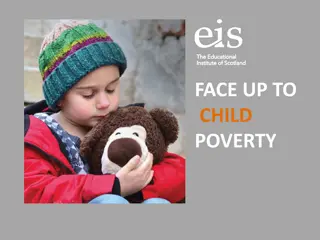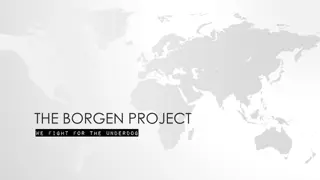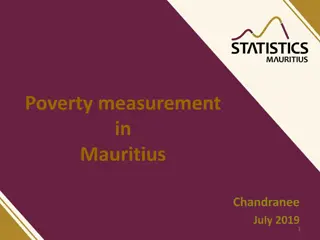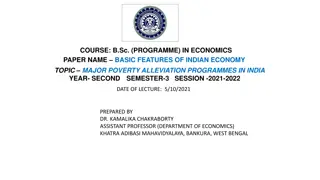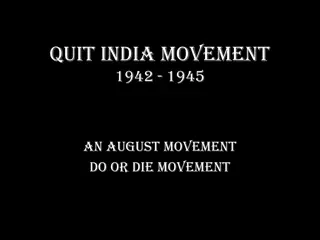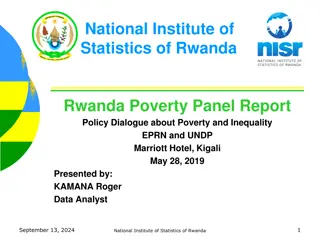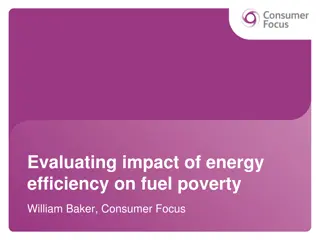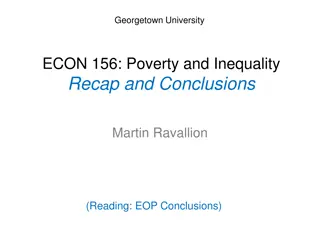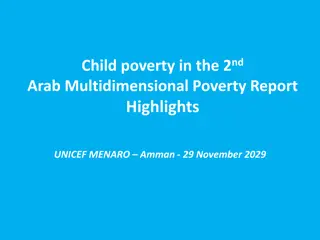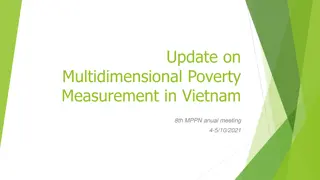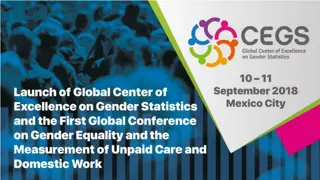Creating Political Will to End Poverty | RESULTS Movement Overview
RESULTS is a movement empowering everyday individuals worldwide to advocate for policies that eradicate poverty. Volunteers, guided by experienced professionals, work towards improving access to healthcare, education, and economic opportunities. The organization addresses global and U.S. poverty issues, advocating for health, education, microfinance, and accountability in aid programs. Discover how RESULTS chapters collaborate to effect positive change through advocacy and community engagement.
Download Presentation

Please find below an Image/Link to download the presentation.
The content on the website is provided AS IS for your information and personal use only. It may not be sold, licensed, or shared on other websites without obtaining consent from the author.If you encounter any issues during the download, it is possible that the publisher has removed the file from their server.
You are allowed to download the files provided on this website for personal or commercial use, subject to the condition that they are used lawfully. All files are the property of their respective owners.
The content on the website is provided AS IS for your information and personal use only. It may not be sold, licensed, or shared on other websites without obtaining consent from the author.
E N D
Presentation Transcript
RESULTS Creating the Political Will to End Poverty Presented to Enl!ghten By Beth Wilson RESULTS Group Leader & Board Member July 15, 2016
What is RESULTS? RESULTS is a movement of passionate, committed everyday people. Together we use our voices to influence political decisions that will bring an end to poverty.
Volunteers receive training, support, and inspiration to become skilled advocates In time they learn to effectively advise policy makers, guiding them to decisions that improve access to health, education and economic opportunity Together we realize the incredible power we possess to use our voices to change the world.
Where is RESULTS? Started in U.S. in 1980 organized by chapters 121 Groups in the U.S., 79 focus on Global Poverty, 42 focus on U.S. Poverty National professional staff in Washington, D.C. led by Dr. Joanne Carter Spread around the world to Australia, Canada, Japan, Kenya, Mexico, South Korea, United Kingdom and Zambia In Washington State: Bremerton/Central & North Kitsap (Domestic), South Kitsap/Gig Harbor, Seattle, Tacoma, Olympia, Snohomish and Spokane (all Global) with expansion planned for Tri-Cities Groups meet once or twice a month to plan their actions to build the political will to end poverty. An annual International Conference is held each summer in Washington, DC, attended by 500 people from dozens of countries.
What does RESULTS advocate for? RESULTS started to end hunger around the world. Now works to end poverty at the global level and the domestic (U.S.) level. Global Poverty: End extreme poverty by 2030 Health Maternal & Child Health, AIDS, Malaria & TB Education - for 49 million children without access to education and the 40% of all children whose education is insufficient to ensure literacy Microfinance for the poorest to lift themselves out of poverty and support their families and communities U.S.AID and World Bank accountability and effectiveness (Reach Act)
U.S. Poverty, too? Access to effective healthcare and wellness services (Advocated for health reform and funding for community health centers) Reduction of hunger (SNAP/Food Stamps) Access to early childhood education (Head Start) Poverty reduction through tax policy (EITC & CTC)
What is Advocacy? Advocacy is creating political will Telling decision-makers what their priorities should be Building public support through effective engagement in the media If we want something, we have to ask for it Every idea must have a voice Decision-makers are not all knowing Many times, they need to be educated just like everyone else
Ultimatelyits about change All major changes in social or economic policy, good or bad, happened because advocates did not give up until it happened. The status quo, inertia, is a powerful force.
Advocacy Approaches Constituent visits and individual letters are the most effective way to influence
Advocacy Approaches Visits from paid lobbyists are only moderately effective
Advocacy Approaches Form letters, postcards and form faxes are least effective
Advocacy Never doubt that a small group of thoughtful, committed citizens can change the world. Indeed, it is the only thing that ever has. anthropologist Margaret Mead
Washington State Congressional Districts 1 Suzan DelBene, 2 Rick Larsen, 3 Jaime Herrera Beutler, 4 Dan Newhouse, 5 Cathy McMorris Rogers, 6 Derek Kilmer, 7-Jim McDermott, 8-David Reichert, 9 Adam Smith, 10 Denny Heck
An Example of RESULTSs Work: The Story of Representative Derek Kilmer s Letter to the President Global Fund to Fight AIDS, Tuberculosis and Malaria Began in 2002 to fight the world s most deadly diseases Pledging conference held every three years, next on September 17, 2016 in Montreal, Canada. While at the 2016 International Conference, RESULTS members asked Congressman Kilmer to sponsor a letter to President Obama urging a $4.3B three-year pledge, signed by all members of the WA State Congressional delegation. Involved Rep. Kilmer s Congressional staff, all RESULTS groups, our ONE Campaign Partners. Secured the final signature less than one hour before the deadline on 7/14/16.
Why the Global Fund? Since 2002 when it began, through its partners, the Global Fund has: Saved 17 million lives Provided treatment to 13.2 million Tuberculosis patients 8.1 million people are alive due to ARV treatments for HIV/AIDS 585 million bed nets have been distributed to families at risk for malaria Leverages $2 additional dollars for every $1 the U.S. contributes With the next pledge, the Global Fund plans to save 8 million lives and prevent 300 million new infections from HIV, TB and Malaria by 2020.
The Education for All Act (H.R. 4481): Strengthening Impact and Accountability 59 million primary school-aged children around the world have no access to an education (was 100 million in 1999) Even of those in school, 250 million kids nearly 40 percent of the world s children of primary school age can t read a single sentence A well-resourced U.S. global education strategy, increased transparency and accountability is needed to ensure the U.S. government effectively contributes to realizing quality education for children around the world
The Reach Every Mother & Child Act Develops a U.S. Government strategy to help end preventable child and maternal deaths with ambitious, clear, and measurable goals; Increases accountability and transparency at all levels; Focuses on the poorest and most vulnerable populations, and recognizes the unique needs within different countries and communities; Scales up what is proven to work and save the most lives, while reporting against clear targets; Codifies a Child and Maternal Survival Coordinator responsible for oversight; Creates new, innovative funding sources to complement U.S. investment; Builds the capacity for USAID to meet its goals of saving 15 million child lives and 600,000 women s lives by 2020.
U.S. Poverty Advocacy: Creating Economic Mobility - Building Ladders out of Poverty RESULTS volunteers worked to save key provisions of the Earned Income Tax Credit (EITC) and the Child Tax Credit (CTC). These tax credits are our nation's most successful anti- poverty programs for children the pro-work tax credits helped to lift 9/8 million Americans out of poverty in 2014, including 5.2 million children. Because of the outstanding grassroots advocacy work of RESULTS volunteer advocates and others, in 2015 Congress passed tax legislation that saves the key EITC and CTC provisions. Now RESULTS volunteers are working to expand the EITC to cover families without children who meet the income requirements.
Local RESULTS Groups Bremerton/North & Central Kitsap Group Domestic Poverty Meets on the Wednesday evening following the second Saturday of each month Contact Grace West at (360) 479-8634 or westgracie@gmail.com or Diana Tyree-Eddy at (360) 434-1158 or autumnguest@hotmail.com for more information. South Kitsap/Gig Harbor Group Global Poverty Meets on the second Tuesday evening and the second Saturday morning of each month. For more information contact Beth or Paul Wilson at (253) 857-5234 or bethwilson1950@gmail.com.
